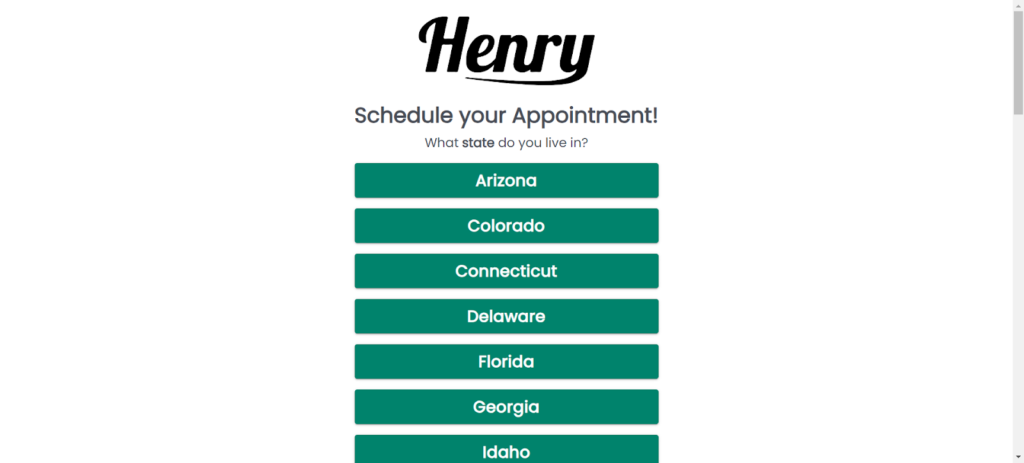The clash of e-commerce titans: Wix stores vs WordPress WooCommerce


Just starting a business and ready to launch an e-commerce site? Chances are, you’re looking for a content management system (CMS). A CMS is where your site will live. It’s where you’ll create, manage, and modify digital content. Through a CMS, you can build an entire e-commerce store without coding knowledge. But when there’s more than one CMS available, like Wix and WordPress WooCommerce, it can be tough to choose the right option.
In this article, we discuss the key differences between the two and why you might choose one over the other.
What is Wix?
Wix is a comprehensive website builder designed to empower individuals and businesses to create their own online presence effortlessly. It stands out for its all-in-one solution, integrating a content management system (CMS), web hosting services, and a suite of tools necessary for launching and managing an e-commerce website. One of Wix’s hallmark features is its user-friendly interface, highlighted by an intuitive drag-and-drop website builder. This feature makes website creation accessible to users of all skill levels, allowing for the customization of site layout and design without the need for coding knowledge.
Furthermore, Wix offers a wide selection of responsive website templates. These templates are crafted to ensure your website looks great on devices of all sizes, from desktops to smartphones, further simplifying the web design process. This is particularly beneficial for small business owners, freelancers, and entrepreneurs who may not have the time or resources to invest in custom web development.
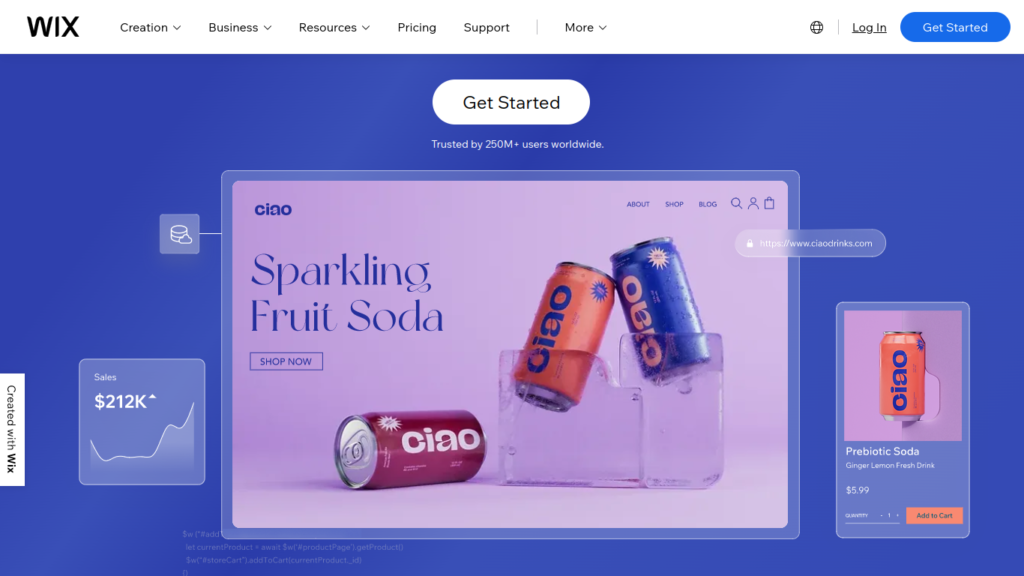
What is WooCommerce?
As of 2023, WooCommerce leads the e-commerce software space globally. Available as a WordPress plugin, it powers a significant portion of the web, offering a robust set of tools for online store management, including product listings, payment options, and shipping features.
What sets WooCommerce apart is its extensive suite of features designed to cater to the diverse needs of online retailers. From product listings that allow for detailed descriptions and multiple images, to integrated payment systems that support a variety of payment gateways, WooCommerce equips users with all the necessary tools to operate a successful online business. Shipping options are also comprehensive, offering flexibility to accommodate different shipping methods and rates, which is crucial for businesses looking to sell and ship globally.
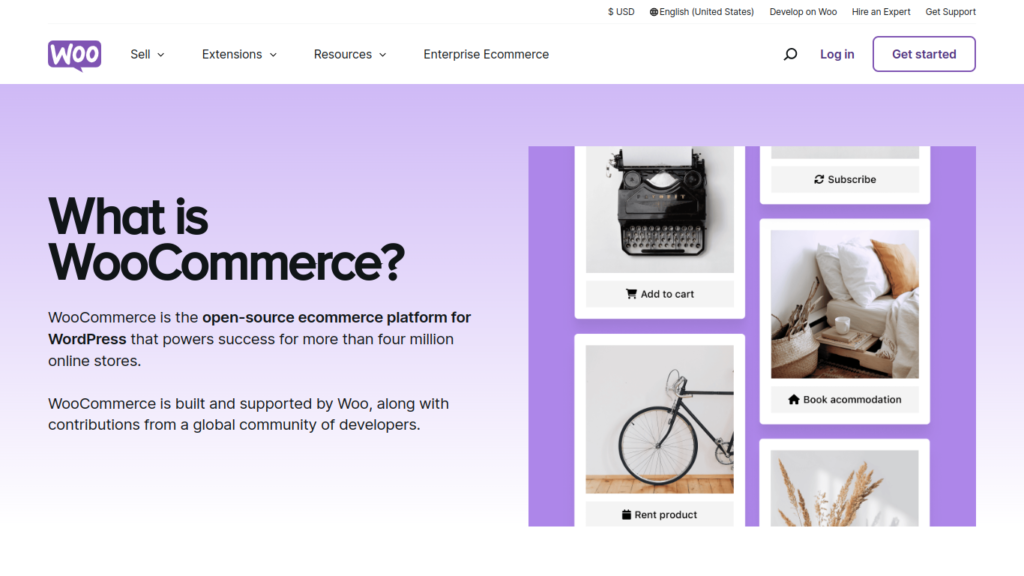
Wix vs WordPress WooCommerce websites: how are they different?
Ease of use
Wix and WooCommerce both prioritize user experience but take different approaches. Wix’s drag-and-drop editor and templates make site building straightforward. WooCommerce, while user-friendly, requires familiarity with WordPress, adding a learning curve for newcomers.
Scalability
Wix might have limitations when it comes to hosting larger e-commerce stores. The platform may be better for small to medium-sized businesses and individuals needing a simple yet professional website. Wix also has limited storage and bandwidth, so if you run a really large site, it may not be the best option.
WooCommerce is highly scalable and can accommodate websites of all sizes. Because you can customize and extend functionality for your website with premium plugins and themes, the platform can adapt to your business’s changing needs.
Features/functionality
Wix and WooCommerce provide you with the core features to run an online store, from site design to product listings.
However, WooCommerce offers more functionality because you can download additional plugins to meet your needs. And if the solution you’re looking for isn’t available, you can hire a developer to add it or outsource software development. That’s because the CMS WooCommerce runs on (WordPress) is open-source, which means the software code is readily available to view and modify.
The website builder from Wix doesn’t have that same capability. For instance, if you wish to include more than 15 photos for each product, you won’t be able to because Wix restricts you to that number. So, if you had different variations for each product, you wouldn’t be able to show all of them.
Wix offers plugins, too, but it’s not an open-source platform. That means only its core team can add applications to the store. As a result, you may not be able to find the app you’re looking for to fulfill a specific need.
Cost
WooCommerce is free to install on your WordPress website, but you may have to pay for additional plugins or themes. Also, hosting isn’t included, as you’ll need to purchase a hosting plan. Woo Express offers a bundled solution. It includes website hosting, emails, AI-assisted product descriptions, automated backups, and more.
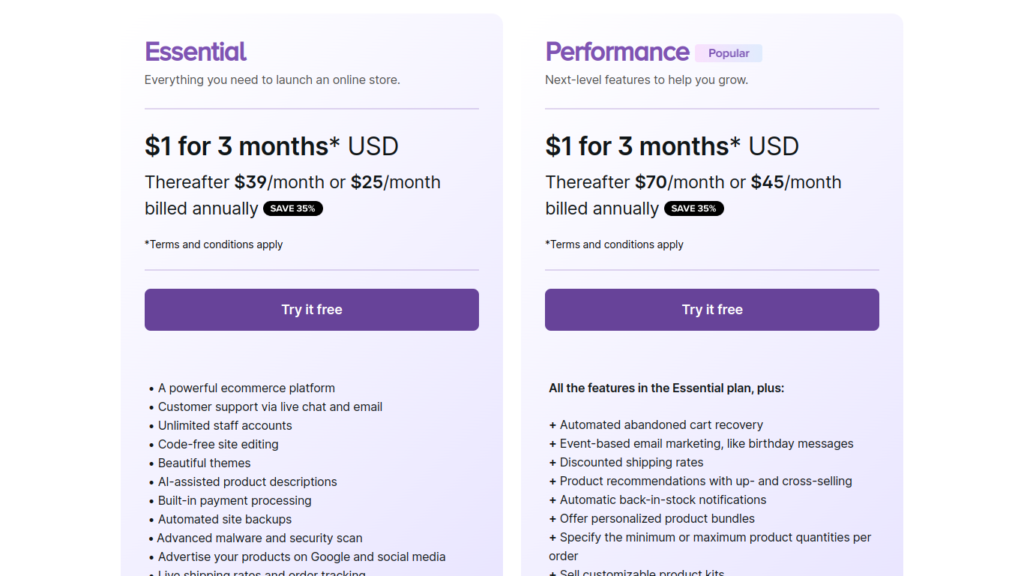
This solution is free for 14 days. Upgrading to the Essential or Performance plan costs only $1 for three months and $39 or $70 per month after that. Wix also offers pricing plans that bundle e-commerce features. Its plans include:
- Business Elite – $159/month
- Business – $36/month
- Core – $29/month
- Lite – $17/month
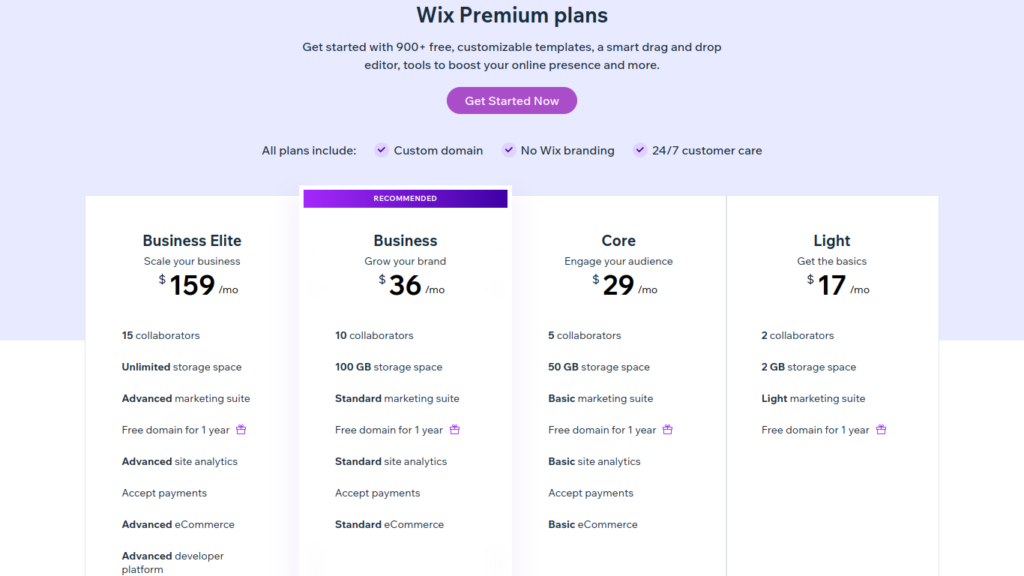
Customization
Wix provides a wide range of customizable templates. However, design options may be limited compared to WordPress.
WordPress, as an open-source platform, offers more flexibility. For example, several themes and plugins available to tailor your store to specific needs. If you have coding skills, you can also make deeper customizations.
Henry Meds is a great example. From anywhere on the site, like this page on alternatives to Ozempic, customers can click on a call-to-action at the top of the page.
The CTA sends visitors to another landing page to schedule an appointment with a medical professional and pay for the appointment.
Customizing all of these landing pages is powered through WooCommerce.
Plugins and integrations
Wix and WooCommerce allow you to link your website to third-party applications. For example, Wix offers hundreds of apps on the App Market for you to download. These include PayPal, Google Analytics, and Mailchimp.
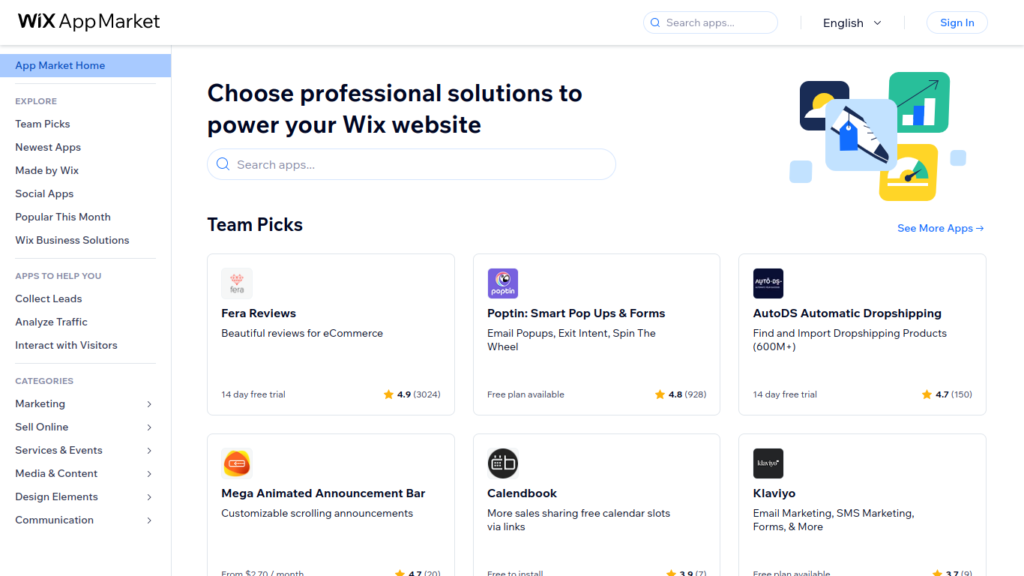
On the other hand, the number of available apps in the WordPress ecosystem (over 59,000) is much higher, which means more plugins for WooCommerce. With these plugins, you can extend the functionality of your WooCommerce store. For example, you can add payment gateways, shipping options, marketing tools, inventory management, and more.
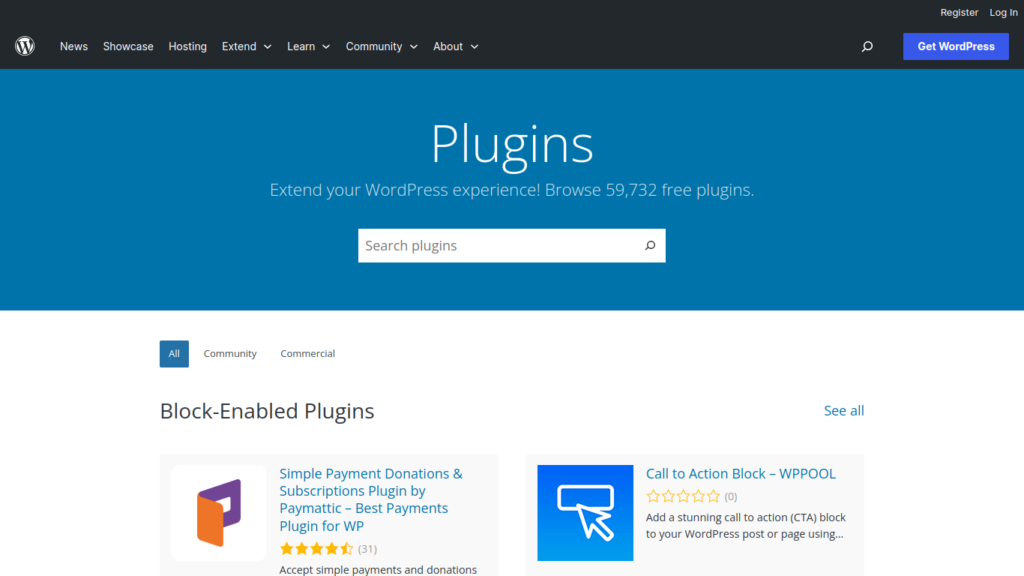
Search engine optimization (SEO)
SEO is key in helping e-commerce websites rank in search to boost product visibility. Both WooCommerce and Wix offer SEO tools that help online business owners achieve higher rankings in the search engine results pages (SERPs). Since WooCommerce is a WordPress plugin, it already benefits from built-in SEO-friendly features. It provides access to SEO plugins like Yoast, RankMath, and SEOPress. With these plugins, you can optimize metadata, product descriptions, titles, images, and internal linking structure.
Wix also offers an SEO wizard that allows you to optimize different parts of your site, from titles to image alt tags. You can also download the free Site Booster app to optimize SEO and increase your chances of ranking.
However, with WordPress/WooCommerce, you can control your site’s technical SEO elements like site speed, mobile responsiveness, structured data markup, and more. On the other hand, Wix handles the technical aspects of your site internally, like hosting and performance, which is convenient if you prefer an all-in-one solution. However, it might offer less flexibility for advanced technical SEO capabilities.
Blogging
Wix offers the most basic blogging features, including posts, categories, labeling, archives, photos, and videos. By downloading the Wix Blog app, you can create authors and blogs directly from a mobile device. However, comments on Wix are more difficult to manage than they are on WordPress. As a result, users end up downloading a third-party commenting system like Facebook or Disqus. Unlike WooCommerce, Wix doesn’t offer the functionality to backdate posts or create private posts.
Also, Wix’s blogging platform isn’t as easy to use as its website builder. It uses a plain text editor. This makes for limited formatting options.
WooCommerce is available on the WordPress platform, which means you’ll have access to the advanced blogging features the CMS has to offer. For example, it has a native commenting feature that allows you to approve or delete comments posted by visitors to your website before they go public. That means if a spam message comes through, no one will see it unless you approve it.
WordPress also comes with the powerful Gutenberg block editor, which offers an intuitive way to organize and customize the design of your blog posts, thanks to “blocks.”
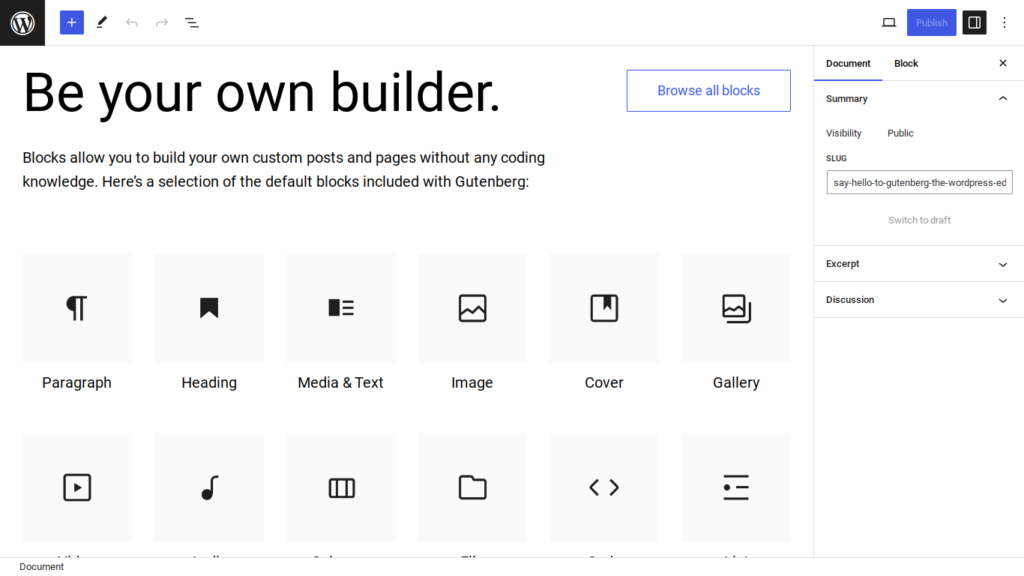
Support
If you’re just getting started, top-notch customer support is what you need to learn how to build and manage your site. Although WooCommerce offers priority support with its Enterprise plan, support from its developers is almost non-existent for its free version. Support is only available if you purchase a premium theme or plugin. And this is only for the plugin itself, not the site.
However, you can get help and answers to your questions through the WordPress forum or WooCommerce guides. Wix, on the other hand, is a fully hosted platform, so it offers 24/7 customer support via live chat, email, and phone.
E-commerce tools
We can’t end a post about top e-commerce website builders without talking about e-commerce tools.
These are what make or break a CMS for online sellers. Both Wix and WooCommerce offer great e-commerce features. For example, they both come with tools like:
- Mobile apps for managing orders on the go
- Seamless inventory management
- Extensive online payment options
- Shipping and fulfillment solutions
- Automates sales tax
What sets WooCommerce apart is its ability to power high-volume stores. Woo Enterprise offers unlimited customization, advanced online selling features, and priority support.
Wix vs WordPress WooCommerce: bottom line
Wix and WooCommerce are two awesome content management systems. The one you choose will depend on your individual preferences and needs. Wix is known for its ease of use, all-in-one offerings, and beginner-friendly features. WooCommerce offers flexibility and scalability, full control, and advanced features that may require more technical skills to take advantage of if you want additional functionality.
For more personalized e-commerce promotions tailored to your business needs, check out our comprehensive guide on creating effective e-commerce campaigns. Discover strategies to boost sales, engage customers, and grow your online store’s revenue.


